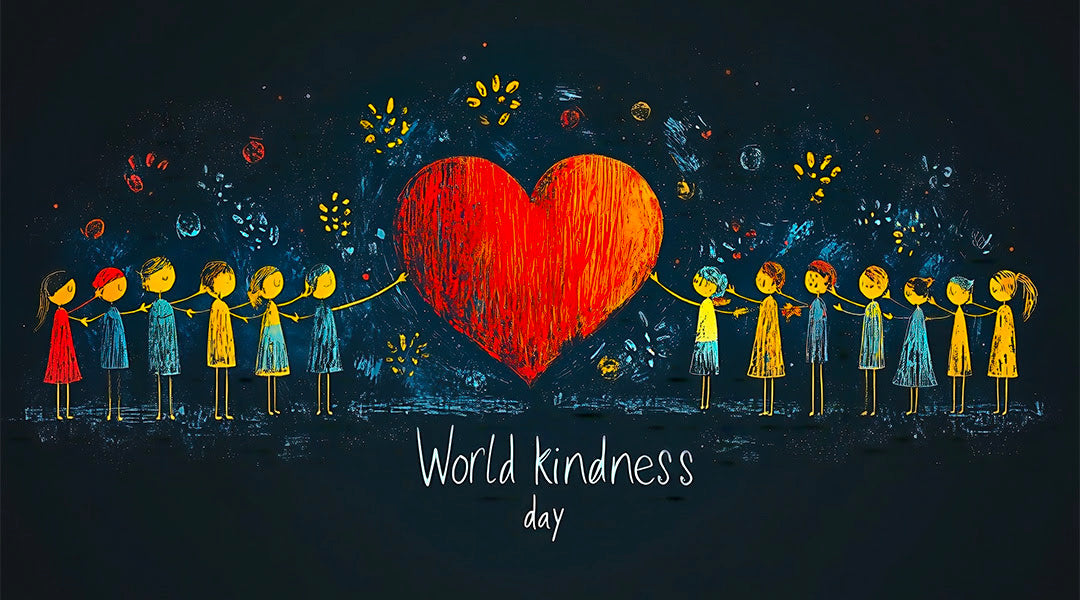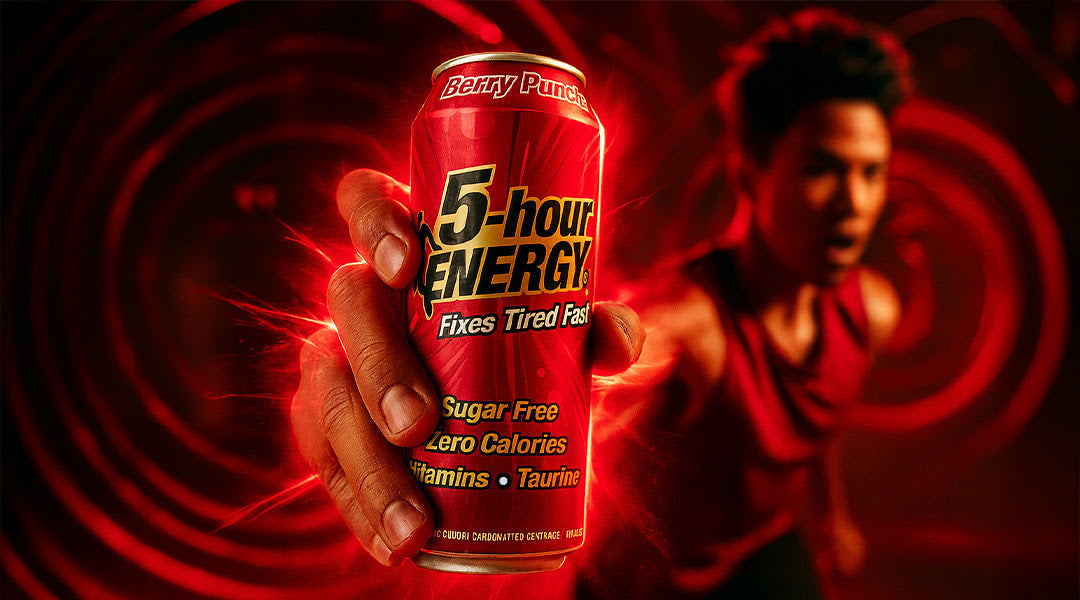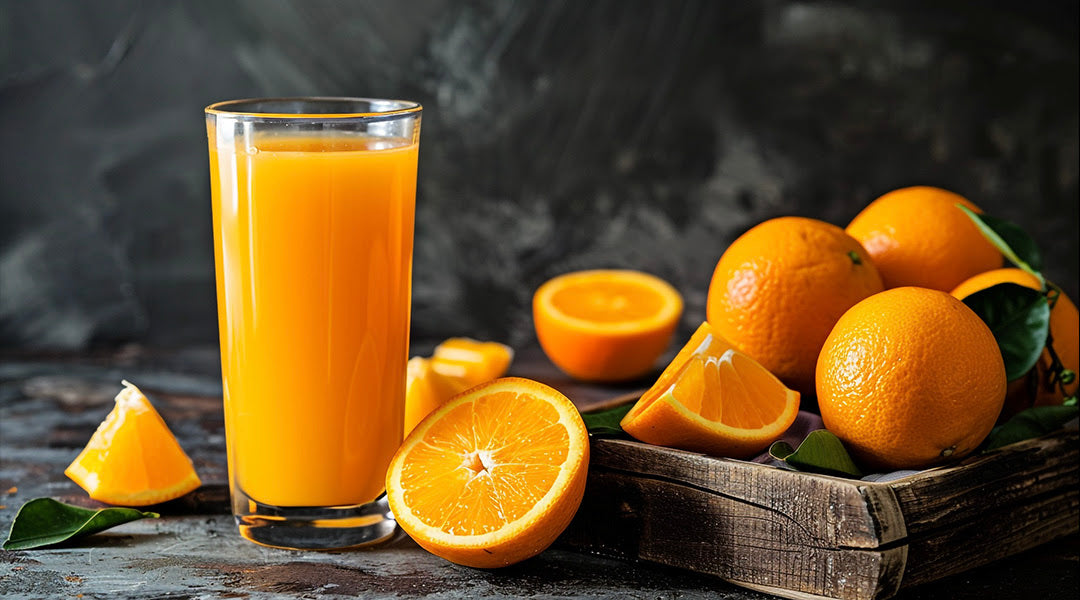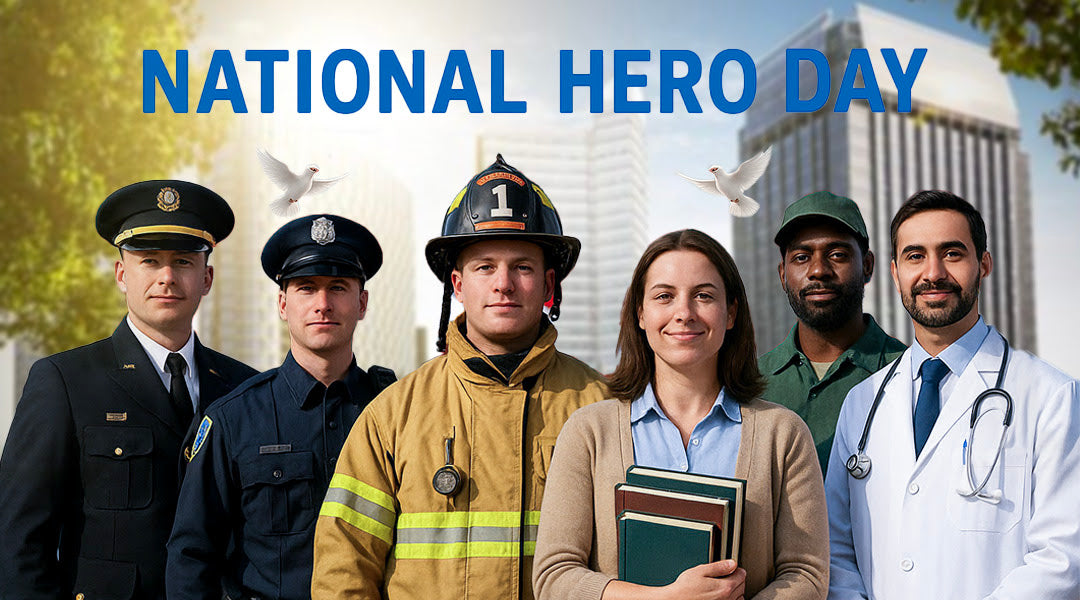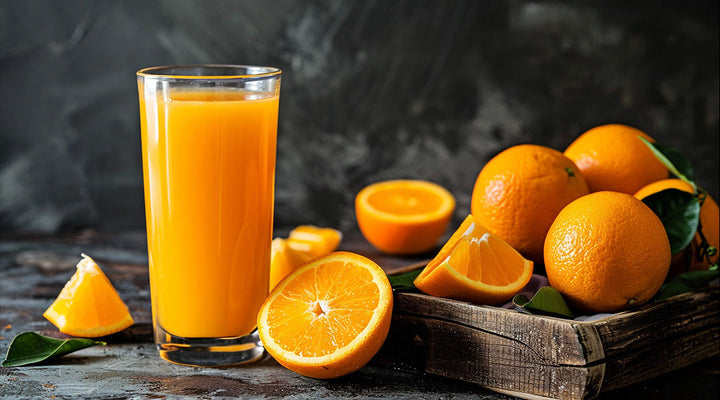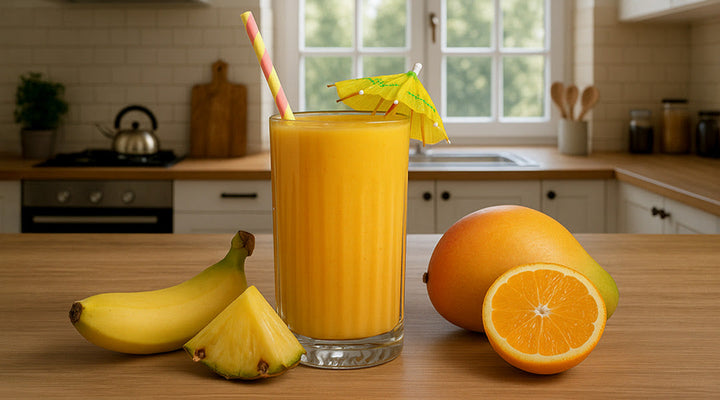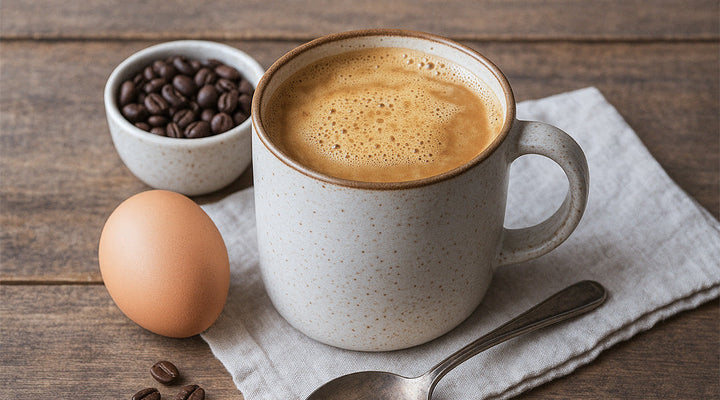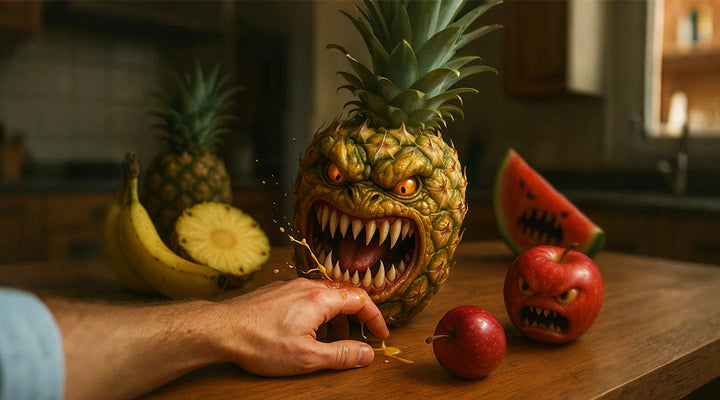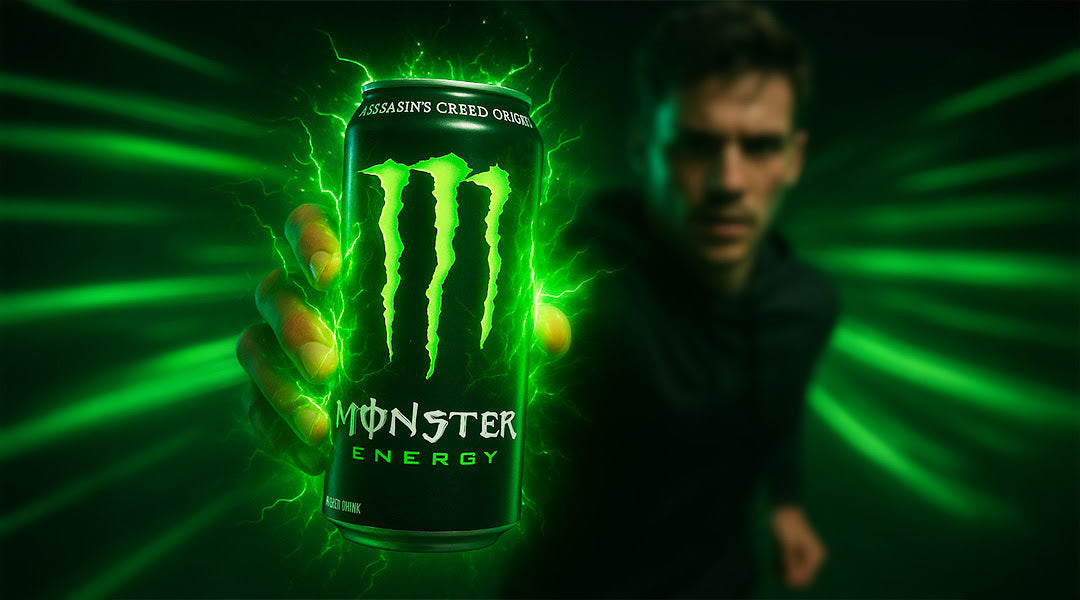
Is Monster Energy Bad for You? Health Risks & Side Effects
Quick Answer
Monster Energy drinks pack a lot of caffeine, sugar, and other stimulants. Too much can be risky. One 16-ounce can has about 160mg of caffeine and 54 grams of sugar. That is close to the daily limits for most people. Studies have linked these drinks to heart problems like irregular heartbeat, high blood pressure, and, in rare cases, cardiac arrest. For most adults, one can per day should be the absolute max.
Key Takeaways
- A 16oz Monster has 160mg caffeine and 54g sugar.
- Energy drinks can trigger heart rhythm issues and raise blood pressure.
- The FDA has reports linking these drinks to hospital stays and even deaths.
- Teens should stay away as ER visits have doubled since 2017.
- Mixing Monster with alcohol can raise the risk of dangerous behavior.
- Better choices include coffee, tea, or natural foods that boost energy.
That afternoon slump hits hard. You grab a Monster from the fridge, crack it open, and feel the rush. You’re not the only one because energy drink sales passed $25 billion last year and could double by 2033.
But that quick boost has a price. I once saw my nephew, a high school athlete, drink three cans before practice. I asked if he knew the risks. He just said, “Everyone drinks them.”
This laid-back attitude toward strong stimulants worries doctors. As one of the biggest energy drink brands, Monster Energy needs a closer look. What it does to your body, and if that boost is worth the possible harm.
What's Really Inside Monster Energy Drinks?

Monster’s bright green can is more than just caffeine. Here’s what’s inside:
Caffeine: A 16-ounce can has around 160mg of caffeine and that is about 1.5 cups of coffee. The FDA says up to 400mg a day is safe for most healthy adults, but one can get you almost halfway there.
Sugar:One can has 54 grams of sugar and that is way over the American Heart Association’s daily limit of 36 grams for men and 25 grams for women.
Energy Blend: Includes guarana (extra caffeine), taurine, L-carnitine, and B vitamins often marketed as “energy boosters.”
Artificial Ingredients: Added colors, flavors, preservatives, and sodium benzoate.
Together, these create a powerful stimulant mix, much stronger than coffee alone, that can bring both the boost you want, and the side effects you don’t.
Monster vs. Other Caffeinated Beverages

Here’s how Monster compares:
- Coffee (8oz): 100mg caffeine, almost no sugar if black
- Coca-Cola (12oz):50mg caffeine, 39g sugar
- Monster Energy (16oz):160mg caffeine, 54g sugar
- 5-Hour Energy (2oz shot):200mg caffeine, 0g sugar
- Bang Energy (16oz):300mg caffeine, 0g sugar
Monster has more caffeine than soda, but less than some other energy drinks. Still, it’s not just the caffeine but it’s the mix of sugar and stimulants that hits harder.
A study in the FASEB Journal found that the combination of ingredients in Monster can cause body reactions beyond caffeine alone.
|
Beverage |
Serving Size |
Caffeine Content |
Sugar Content |
|
Monster Energy |
16 oz |
160 mg |
54 g |
|
Coffee (black) |
8 oz |
100 mg |
0 g |
|
Coca-Cola |
12 oz |
50 mg |
39 g |
|
5-Hour Energy |
2 oz |
200 mg |
0 g |
|
Bang Energy |
16 oz |
300 mg |
0 g |
Heart Concerns: The Real Monster?

Heart health is one of the biggest worries with Monster. Many reports link it to serious heart issues.
One case in Critical Care Medicine told of a healthy 48-year-old man who went into cardiac arrest after drinking 5–6 cans during a long shift. He had no past heart problems but ended up in ventricular fibrillation - a deadly heart rhythm - and needed CPR and shocks to survive.
Energy drinks can cause:
- Higher blood pressure
- Abnormal heart rhythms
- Faster heart rate
- QT interval prolongation (can lead to dangerous arrhythmias)
And it’s not just people with known heart disease. A review in Reviews in Cardiovascular Medicine found links between energy drinks and “atrial and ventricular arrhythmias, heart attacks, weakened heart muscle, and sudden cardiac death” in otherwise healthy people.
The caffeine blocks adenosine receptors and works as a phosphodiesterase inhibitor, which can trigger these effects. Guarana and taurine may make the risks worse.
Teenagers and Monster Energy: A Growing Concern

Teens are some of the biggest energy drink consumers and the most at risk.
From 2022 to 2023, America’s Poison Centers reported a 24.2% jump in energy drink cases for people under 20. ER visits for caffeine overdose more than doubled for middle school kids since 2017.
The American Academy of Pediatrics says teens should stay under 100mg caffeine daily and so even one can of Monster goes over the limit.
A case in the International Journal of Community Medicine and Public Health told of a young athlete who developed high blood pressure and a rapid heartbeat from regular Monster use. His symptoms went away after quitting.
Beyond the Heart: Other Health Impacts

Monster’s effects aren’t only on the heart:
Digestive System: A case in The American Journal of the Medical Sciences described a man with diabetes who got gastritis, hepatitis, and pancreatitis after drinking 2–3 cans daily for months. He recovered after stopping.
Sleep Problems: High caffeine can ruin sleep quality, especially if you drink it later in the day.
Anxiety and Jitters: Many feel nervous or shaky after drinking it.
Dependency: Daily use can lead to caffeine dependence and withdrawal symptoms.
Dental Health: The acid and sugar can wear down enamel and cause cavities.
The Alcohol and Monster Combination
Mixing Monster with alcohol can be dangerous. The FDA says caffeine is an “unsafe additive” in alcoholic drinks for good reason.
Combining a stimulant with a depressant hides the sleepy feeling alcohol gives. This can make you:
1. Misjudge how drunk you are
2. Drink more than usual
3. Take bigger risks, like driving
4. Get dehydrated faster
It doesn’t make you less drunk but just a more awake drunk, which can be even riskier.
How Much Monster is Too Much?

The FDA says up to 400mg caffeine a day is generally safe for healthy adults, but that doesn’t account for your personal tolerance or other stimulants in these drinks.
Signs you’ve had too much:
- Pounding heartbeat
- Feeling anxious
- Trouble sleeping
- Stomach issues
- Headaches
- Higher blood pressure
From 2009 to 2013, the FDA linked 43 deaths to Monster and 5-Hour Energy drinks.
Most experts say: if you must drink it, stick to one can per day, max. People with heart issues, high blood pressure, diabetes, or other health problems should avoid it.
When Monster Energy Might Be Okay

Not every study on Monster Energy shows bad outcomes. One research paper in The FASEB Journal found that drinking Monster “improves reaction time and was not associated with any adverse effects” in their controlled tests. In that study, people who drank Monster showed faster visual reaction times. Their heart rate, blood oxygen, and other measured signs stayed about the same. This points to the idea that, for healthy adults who drink it occasionally, Monster might boost thinking speed without any instant negative effects.
For many people, Monster Energy does what it’s made for and that is to give a quick energy lift when you’re tired or need to be more alert. The caffeine in one can still falls inside the FDA’s safe daily limit for adults. Athletes, students, and workers sometimes say they can focus better and get more done when using it as intended.
Bottom Line: Proceed with Caution
Monster Energy isn’t automatically “bad” if you’re healthy and drink it in moderation but it’s still a strong stimulant with real risks. The high caffeine, sugar, and stimulant mix can be dangerous, especially if you drink it often or in large amounts.
If you have heart problems, high blood pressure, anxiety, sleep issues, or you’re under 18, pregnant, or nursing then skip it. For others, keep it to one can a day and not every day.
The key here is moderation. Occasional use by healthy adults without health problems is far less risky than heavy, regular use or drinking it in groups that are more vulnerable.


Frequently Asked Questions (FAQ)
Do sugar-free Monster Energy drinks eliminate the health risks?
No. They still have high caffeine and stimulants that can raise heart rate and blood pressure. You’ll cut calories, but the other risks stay.
Can I drink Monster Energy every day?
Most experts say not to. If you do, limit it to one can per day and watch for side effects.
Are energy drinks regulated by the FDA?
Not directly. The FDA treats them as dietary supplements, which means less strict rules on ingredients and claims.
Can Monster Energy drinks improve athletic performance?
Caffeine can give a short boost, but many sports groups warn against them due to health risks and dehydration.
What age should you be to drink Monster?
Health experts say kids and teens shouldn’t drink them. Some countries ban sales to anyone under 16 or 18.
About the Author
This article was written by the Lifeboost writing team using current medical research on caffeine and energy drinks. Sources include the FDA, American Heart Association, and peer-reviewed journals. All links were checked for accuracy in 2024.
Disclaimer: This content isn’t meant to replace medical advice. Always talk to your doctor about whether energy drinks are safe for you, especially if you have health conditions.
Check out Lifeboost Coffee Grata Medium Roast.

